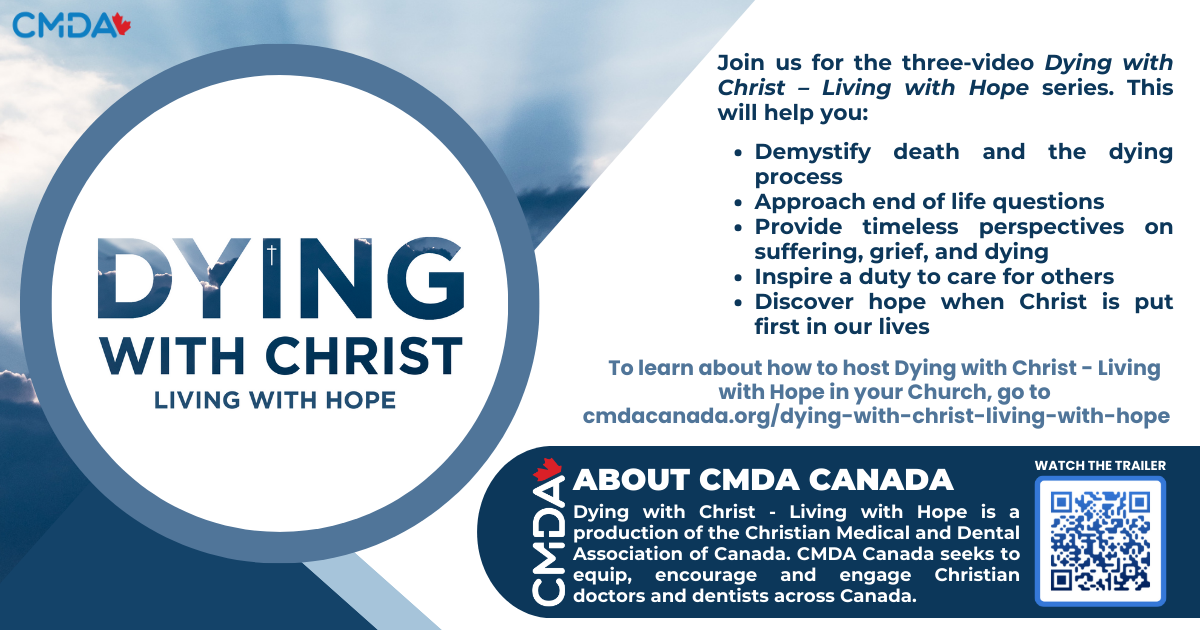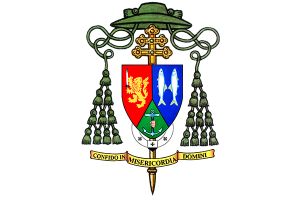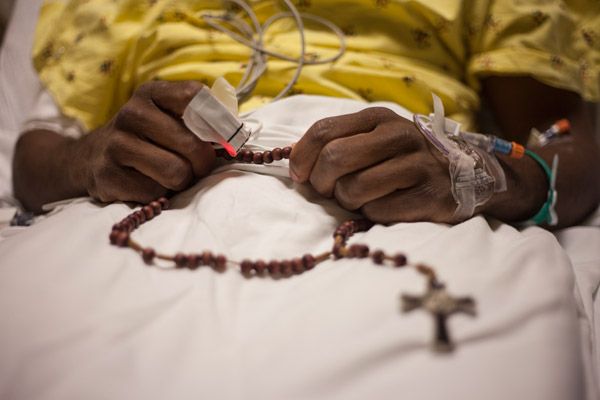
Dying with Christ, Living with Hope


On Friday, Feb 6 the Supreme Court of Canada struck down sections of the Criminal Code dealing with assisting in suicide. People everywhere have responded in one way or another to this change. The weekend of the ruling Archbishop Mancini shared his own thoughts and response in the his homily for the 5th Sunday in Ordinary Time:
“Sing praises to the Lord who heals the broken-hearted” – Psalm 147
Dear Friends,
Today the gospel shows us Jesus, the healer! He healed Peter’s mother-in-law, and he healed all those who were brought to him that evening. Why did he do that?
His actions are expressions of compassion and care for all human beings and especially for those who suffer. The responsorial psalm invites us to see and recognize the Lord’s passionate care and to be grateful for his attentiveness. As we gather today to celebrate the Eucharist, let us indeed sing and rejoice to the Lord – because he and only he can fully heal the broken-hearted.
In our times, as in the Lord’s time and even before him, people who suffer seek relief from their suffering. In the first reading for today’s Mass we read about Job, who suddenly finds himself faced with a life that has fallen apart and he is looking for answers. He went from a faithful practicing member of God’s people, who had everything going for him and in no time at all lost everything. It’s no surprise that he is depressed and wonders what the point of living is all about. Job is the story of every man and woman! We all struggle and sometimes wonder what’s the point of living? This is particularly true when we face pain and suffering. What is one to do? What should be our response to illness, to physical pain, to mental distress, to depression; how are we supposed to deal with our broken bodies and our broken hearts?
This weekend, such questions and reflections are the subject matter which has dominated the news in Canada, because of the Supreme Court’s decision, opening the doors to assisted suicide. Soon in Canada, if you have some kind of illness or disability, which you cannot tolerate, you will have the right to end it all. This is a sad moment in our country, indeed for Christians and for all who believe in the sanctity of life. This court decision is a dishonourable response to the human condition and to the reality of suffering.
As Catholics who believe in the way of the Lord, the response to suffering is to provide care! Christ healed the sick and broken-hearted by being understanding and compassionate. The Christian response to suffering, in keeping with Christ’s actions, is to transform suffering with meaning. When there is no meaning to suffering, it is only pain, and of course people are afraid; they become angry and depressed. But where there is meaning, where there is love and proper care, where there is community support, suffering can become sacrifice! Sacrifice is not just another word for ‘put up with’. It literally means, from its Latin root, to make something “sacred”. To take suffering and to transform it with meaning is to make the reality of suffering a manifestation of the Holy and the sacred. This is what we do every time we gather for Mass, we relive the suffering of Christ on the cross and because of its meaning, experience it as a Holy Sacrifice.
In the decision of the Supreme Court, we are being presented by the trend of our culture and by the decree of our court with the illusion of a right – the freedom of choice between life and death. The message we have received is: avoid the pain, avoid the anger and the fear, avoid the depression and the indignity of being sick and dependant by being master of your own demise. Choose death on your own terms! And on your own time!
Christ and the gospel offer us another message and another possibility, that is: choose life beyond death. But what if there is no faith, if there is no God to believe in, if there is no resurrection, then there is no life to look forward to. The challenge to us, who are followers of Christ, is: do we truly have faith and do we trust God to be with us, to see us through this life and to accompany us through death into the abundant life offered us by Christ’s resurrection? We are reminded by these questions that to be a Christian and a Catholic now, can no longer be an accident of birth – it has to be a conscious personal decision.
It is clear, therefore, that if we are going to be faithful to Christ, we are going to find the task demanding and difficult. We are no longer the majority in our country, and as the “few” who have another perspective on life and death, we will have to be unified and supportive of each other, in the face of tremendous pressures to be like everyone else.
In St. Paul’s letter to the Corinthians, Paul tells his community that to preach the gospel is an obligation. He does it because he has been changed by his experience and knowledge of Jesus Christ. It will have to be so for us as well. Either Christ is our life, or it is all just words! Paul said in another place “for this I have accepted the loss of everything. All I want is to know Christ and the power of his resurrection, that I may imitate the pattern of his death – only in this way can I find a share with him in the resurrection.”
Let us pray that each of us can have the experience and grace of a transforming encounter with Christ, like Paul did. May each of us know what being healed of our broken hearts truly signifies. Finally, may we have the strength and the courage to witness to the dignity of the human person by choosing life and not death.
Amen.


